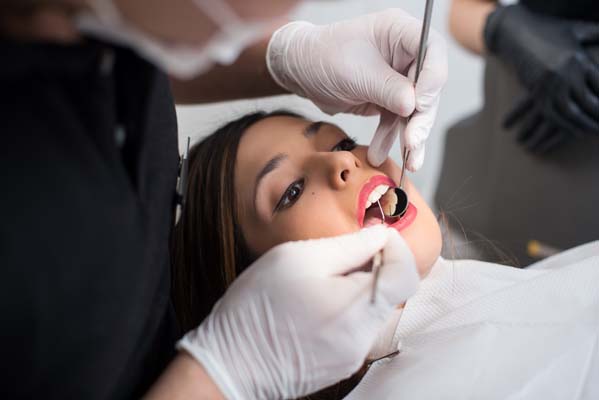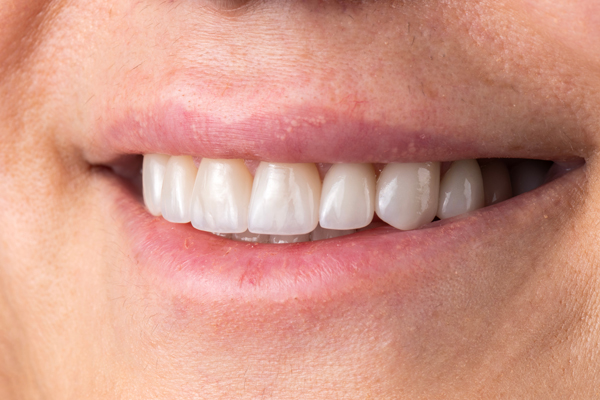A General Dentist Shares the Benefits of a Dental Implant to Replace a Missing Tooth

A general dentist might recommend a dental implant if you have lost a tooth. This is the only tooth replacement option that stops the bone tissue loss that takes place when teeth fall out. This loss is the result of the structures that once held the lost tooth in place no longer getting the stimulation that they need to remain healthy. As a result, these bone tissues are absorbed, leading to jawbone deterioration.
An implant serves as an artificial teeth root because it is surgically inserted into your jaw. It is usually made out of titanium, but it can be made with other materials, like zirconium. The implant is left to fuse with bone tissues in a process called osseointegration. It becomes one with the patient’s jawbone, then a restoration like a crown can be placed on it to replace the missing tooth. Dentures and dental bridges can also be attached to implants, based on the patient’s needs.
A general dentist goes over the benefits of getting implants
Many patients are thinking about replacing a missing tooth with an implant. Let us go over the benefits of choosing implants over other missing teeth solutions, like bridges and dentures.
1. Preserves bone tissue loss
One of the main benefits of choosing an implant is preserving the patient’s jawbone. The implant transfers bite forces into the person’s jaw whenever they bite down on something. This stimulates the bone tissues in the jaw to continue making new tissues as the body absorbs some.
The bone tissue loss that occurs with missing teeth can drastically change a person’s facial structures. It can lead to a sunken look and wrinkles forming around their mouth.
2. Requires no special maintenance
People who choose implants over other missing teeth replacement alternatives can return to their daily activities before losing a tooth. These oral prosthetics do not require any specialized care to keep them in good condition. Just like with natural teeth, brushing and flossing are all it takes. That is a considerable contrast from alternatives, like dentures, which come with cleaning requirements that can take over 20 minutes each day to do.
3. Can last a lifetime
Implants are typically made out of titanium, which is one of the strongest metals on the planet. With good oral hygiene, such implants can last the rest of the patient’s life. The only thing that the patient might ever have to change is the restoration attached to the implants. Crowns are placed on implants when used to replace teeth, and these restorations can last up to 25 years.
We replace missing teeth
Are you dealing with a gap in your smile? Our general dentist can take care of that. Give us a call or visit our Philadelphia clinic to set up an appointment.
Request an appointment here: https://www.ismileteam.com or call iSmile Dental Team PC at (267) 515-6162 for an appointment in our Philadelphia office.
Check out what others are saying about our dental services on Yelp: General Dentist in Philadelphia, PA.
Recent Posts
A general dentist is a great resource to utilize when struggling with an unhealthy tooth. They have the training and experience to know how to handle just about any type of damage, whether it be a loose or infected tooth. When it comes to a general dentist pulling a tooth or saving it, there are…
The key to having a healthy mouth and great teeth is consistency. The more consistent one is with regular dental visits, the less likely one is to have oral health problems. Along with proper at-home care, the secret is to visit at least twice a year for cleaning and examinations.While there are consequences in avoiding…
Instead of giving up free time due to dental issues, spend a little bit of time at a general dentist and enjoy your life.Are you in need of a dental checkup? Has it been more than six months since your last appointment? Then visit our general dentist office for the treatment and professional cleaning you…
Give us a call for more information and to schedule an appointment for a cleaning at our dental office.Even with frequent brushing and flossing, there are other areas of your mouth that toothbrush bristles and floss can't reach. Along with that, there can be signs of infection or plaque buildup that you won't be able…


